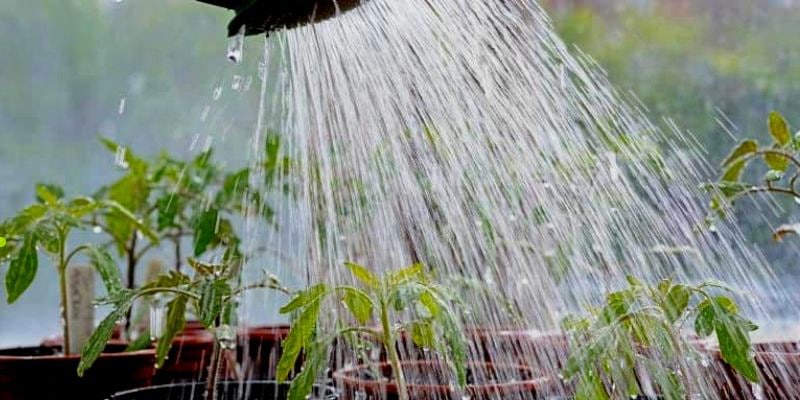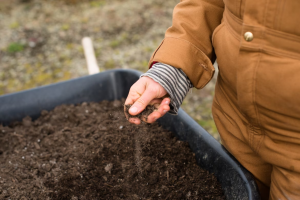[5 Simple Methods] How to Soften Hard Water for Plants

How is hard water softened for plants? Although boiling is the most common method, adding some peat moss can work in this situation. But do you know how much to add, and how much?
Unfortunately, there is no simple solution to this problem. Again, while too much of either can be bad for plants, too little of either won’t give your plant what it needs to thrive. Because of this, it is ideal to provide a mixture of hard and soft water for your plants.
For the purposes of this article, we will discuss methods for ameliorating the damaging effects of hard water on plant life. Accordingly, you’ve come to the right place if you rely on a hard water supply.
Table of Contents
How to Make Hard Water Less Harsh for Plants? Ways and Processes
For obvious reasons, plant life thrives best in hard water. However, in this context, we’re discussing the process of transforming extremely hard water into a form that can be used by plants. The techniques described below can be used to alleviate the issue of hard water.
Boiling
The most common method for reducing the hardness of water is boiling. Ions of Hydrogen and Calcium Carbonate persist in hard water. The ion in water disperses as it boils. Therefore, the water is smoothed out by the evaporation of rough terrain.
The same holds true for bodies of water like oceans, rivers, and streams. When water evaporates in softened heat, it leaves behind water that is still Hard Water. Plus, we get Soft Water when it rains.
Resin for Ion Exchange
The positive Sodium ions in the ionic lattice of ion exchange resin maintain a stable anionic structure. It’s more accurate to compare this resin to clay. The Calcium Ion gets trapped in the Ion Exchange Resin when hard water is added. Water is released along with the sodium ion.
The water is then suitable for use in plants after being softened. Keep in mind, though, that there is a set time at which the column will be completely full of Calcium Ion. Then it needs to be cleaned or reactivated. In order to clean, sodium chloride must be added. That’s the supersaturated salt water, right? This means that the resin will once again be saturated with Sodium Ions. More importantly, it can be recycled for use in the Hard Water softening process.
Alum
Water can also be softened with alum. Its primary function is to lighten the load of dirty or otherwise particle-laden water. Alum cubes can be added to your water supply. You can watch the dirt and water particles settle to the bottom of the bucket after some time has passed.
Alum contains elements that can soften water. That means the water you use to water your plants is pure and soft.
Water Filter Pitcher
Pitchers that filter water are readily available in a variety of designs. You can buy a filtering pitcher and use it to purify water at home. Though it appears to be a lengthy procedure. In any case, you should try this out.
Aquaphor Water Pitcher, Adagio Teas Gravity Water Filter, and MAVEA 1005772 Elemaris XL Water Filter Pitcher are just a few examples of well-liked water filter pitchers on the market today.
Peat Moss
Peat moss can be used to reduce the harshness of water. It is not possible to use peat moss for water storage without making some modifications. The first step is to locate organic Peat Moss. Place it in a Mesh Bag. Then, pour some water into a bowl and add it. You should submerge the peat moss in water. Try giving it a break for a while.
After some time
So, you can use the water for your plants now.
Similarly, if you want to soften the water in your aquarium so you can grow water plants, you can follow the same steps. If you follow the same steps, you can use the strained Peat Moss bag in your aquarium’s filtration system.
Frequently Asked Questions (FAQs)
How do you soften hard water for plants?
There are many ways to make hard water soft so you can use it to water your plants. Some of them are Ion Exchange Resin, Alum, boiling water, and peat moss.
Is it ok to water plants with hard water?
If the water isn’t too hard, it’s fine to use it to water plants. But you shouldn’t water your plants with water that is too oily or too hard.
What is the most common way to soften hard water?
One of the most common methods is heating water to a boil. When water is brought to a boil, the harmful substances are dissolved or evaporated. As a result, the water can be used for both human consumption and plant irrigation.
Conclusion
How to soften hard water for laundry has been covered in detail to this point. Use the above methods to soften hard water. Plants can usually handle moderately hard water without too much trouble. However, you should soften the water before using it on plants if it is hard.
Plants also shouldn’t be watered with too much soft water. That’s bad for your plants’ leaves and roots because of the high concentration of salt it contains.




